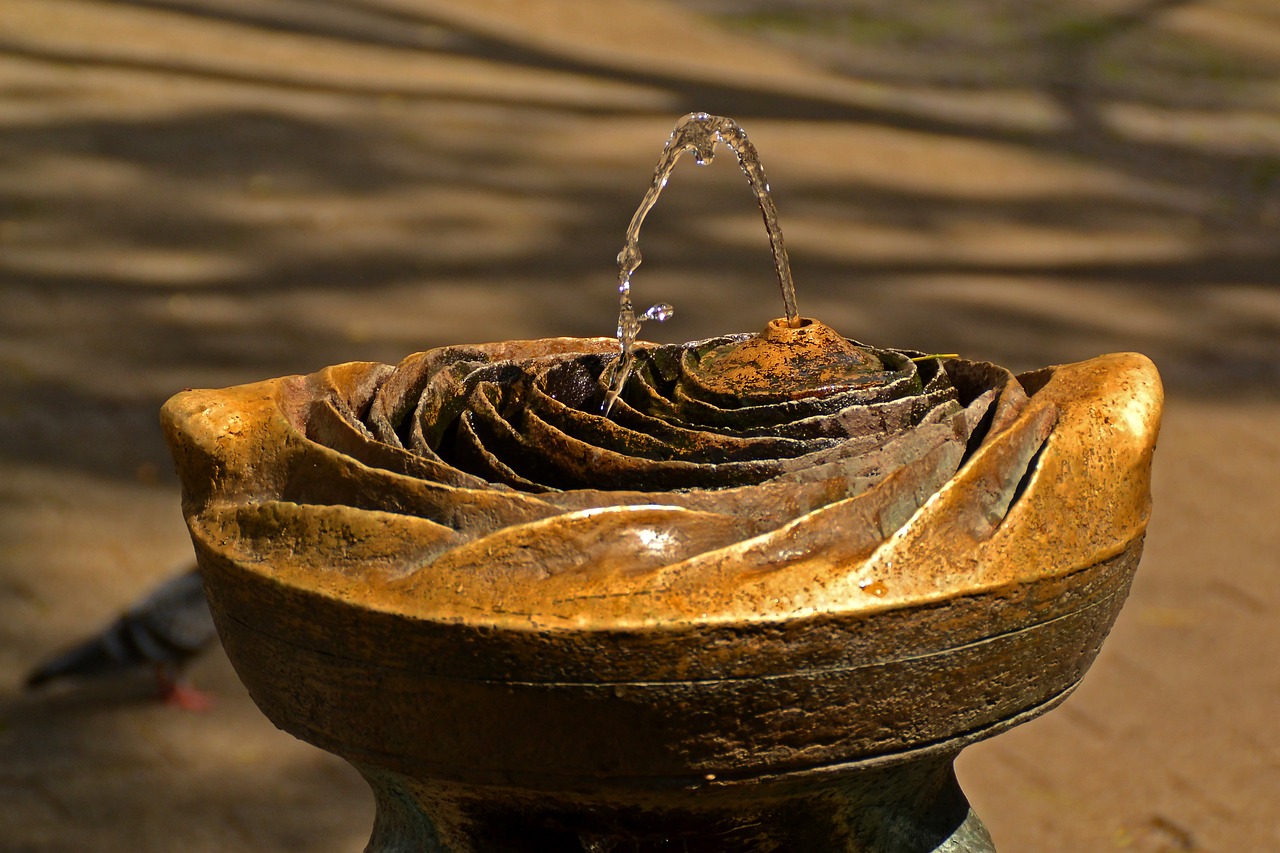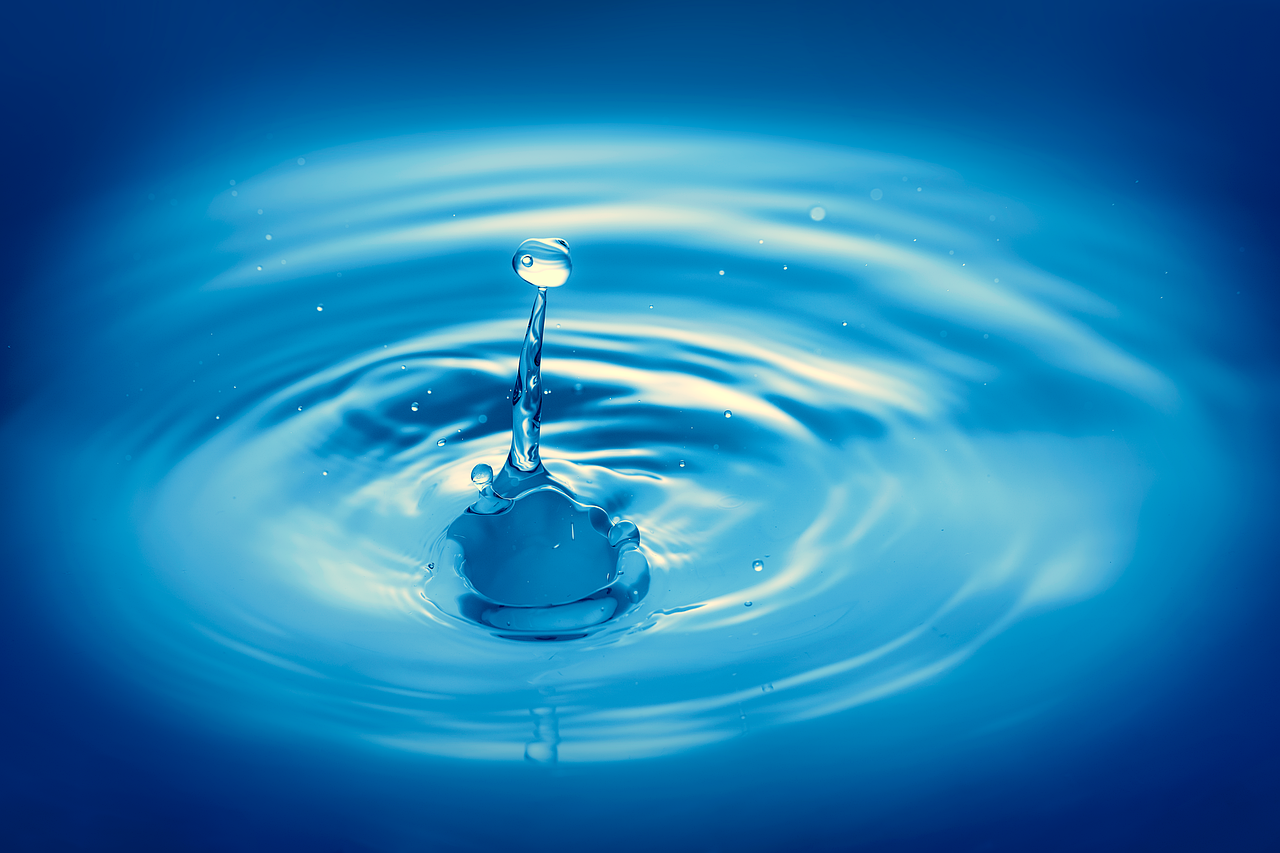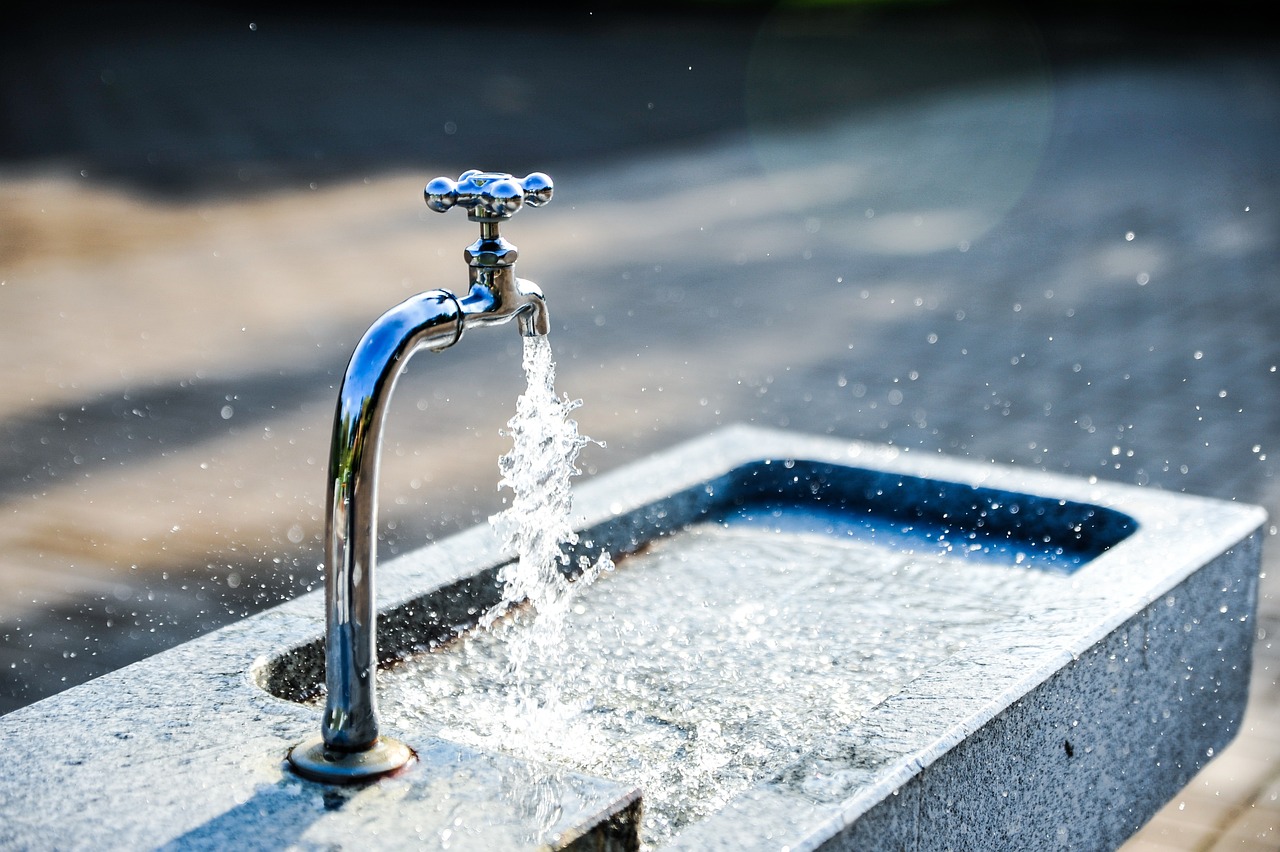This article delves into effective strategies for quickly reducing water weight. By exploring various dietary changes and lifestyle adjustments, we aim to provide you with comprehensive insights to help you achieve your goals both effectively and safely.
Understanding Water Weight
Water weight refers to the temporary retention of fluids in the body. It can fluctuate due to several factors, including diet, hormonal changes, and physical activity. Understanding the underlying causes of water retention is crucial for selecting the right methods for reduction.
Common Causes of Water Retention
- Dietary Choices: High sodium intake is a primary contributor to water retention.
- Hormonal Changes: Fluctuations during menstruation can lead to significant water retention.
- Medical Conditions: Certain health issues may also cause the body to retain excess fluids.
Dietary Influences on Water Retention
Foods high in sodium can lead to increased water retention. Recognizing these dietary influences is essential for effective management. Here are some high sodium foods to avoid:
- Processed foods
- Canned soups
- Salty snacks
Benefits of Reducing Sodium Intake
Lowering sodium intake can help decrease water retention, leading to a more balanced fluid level and improved overall health. This adjustment can be a simple yet effective step toward achieving your desired weight loss.
Hormonal Changes and Their Impact
Hormonal fluctuations, particularly during menstruation, can significantly affect water retention. Understanding this can help in managing symptoms effectively, allowing individuals to adapt their strategies accordingly.
Effective Dietary Changes to Reduce Water Weight
Implementing specific dietary changes can facilitate faster water weight loss. Here are some practical adjustments to consider:
- Incorporating Foods with Natural Diuretic Properties: Foods like cucumbers, watermelon, and asparagus can help flush excess water from the body.
- Hydration and Its Role: Drinking adequate water can paradoxically help reduce water retention by promoting kidney function and flushing out excess sodium.
Exercise as a Method to Reduce Water Weight
Regular physical activity can aid in reducing water weight through various mechanisms, including sweat production and improved circulation. Here are some effective types of exercises to consider:
- Cardio: Activities like running, cycling, or swimming can help sweat out excess water.
- Strength Training: Building muscle enhances metabolism and can contribute to long-term weight management.
Importance of Consistency in Exercise
Maintaining a regular exercise routine is essential for long-term results in reducing water weight and improving overall health. Aim for at least 150 minutes of moderate aerobic activity each week, combined with strength training exercises on two or more days.
When to Seek Medical Advice
While water retention is often harmless, persistent or severe cases may indicate underlying health issues. If you experience significant swelling, discomfort, or sudden weight gain, it is vital to consult a healthcare professional for a thorough evaluation.
In conclusion, by understanding the factors contributing to water weight and implementing strategic dietary and lifestyle changes, you can effectively manage and reduce water retention. Remember that consistency is key, and always listen to your body’s signals.

Understanding Water Weight
is crucial for anyone looking to manage their body composition effectively. Water weight refers to the temporary retention of fluids in the body, which can fluctuate due to various factors. This phenomenon can sometimes be mistaken for fat gain, leading to confusion and frustration for individuals trying to maintain or lose weight. By understanding the causes and mechanisms behind water retention, individuals can better select appropriate methods for reduction.
Water retention can be influenced by several factors, including dietary choices, hormonal changes, and lifestyle habits. Recognizing these can aid in effective management and provide insights into how to achieve a more balanced body composition.
- Dietary Influences: Foods high in sodium are notorious for causing the body to retain water. When sodium levels increase, the body holds onto water to maintain a balance, leading to temporary weight gain.
- Hormonal Fluctuations: Women often experience water retention during their menstrual cycle due to hormonal changes. These fluctuations can lead to discomfort and bloating.
- Medical Conditions: Certain health issues, such as kidney disease or heart failure, can also contribute to excessive water retention. It is essential to consult a healthcare provider if water retention persists.
In addition to these factors, certain foods can exacerbate water retention. Processed foods, canned soups, and salty snacks are particularly high in sodium and should be consumed in moderation. Conversely, incorporating foods with natural diuretic properties, such as cucumbers, watermelon, and asparagus, can help the body flush out excess fluids.
Another critical aspect of managing water weight is hydration. It may seem counterintuitive, but drinking adequate amounts of water can actually help reduce water retention. When the body is well-hydrated, it functions more efficiently, promoting kidney health and flushing out excess sodium. This can lead to a decrease in water weight over time.
Exercise plays a significant role in managing water weight as well. Engaging in regular physical activity helps the body sweat out excess fluids, contributing to a reduction in water retention. Both cardio and strength training exercises are effective. Cardio workouts increase heart rate and perspiration, while strength training builds muscle, which can enhance metabolism and improve overall body composition.
Consistency is key when it comes to exercise. Maintaining a regular routine not only helps in reducing water weight but also promotes long-term health benefits. It is essential to find a balance between different types of workouts to keep the body engaged and motivated.
While water retention is often harmless, it is important to be aware of when to seek medical advice. If an individual experiences persistent or severe water retention, it may indicate an underlying health issue that requires professional attention. Understanding the signs and symptoms can empower individuals to take proactive steps in managing their health.
In conclusion, understanding water weight and its causes is vital for effective management. By making informed dietary choices, staying hydrated, and incorporating regular exercise, individuals can successfully reduce water retention and achieve their health goals.
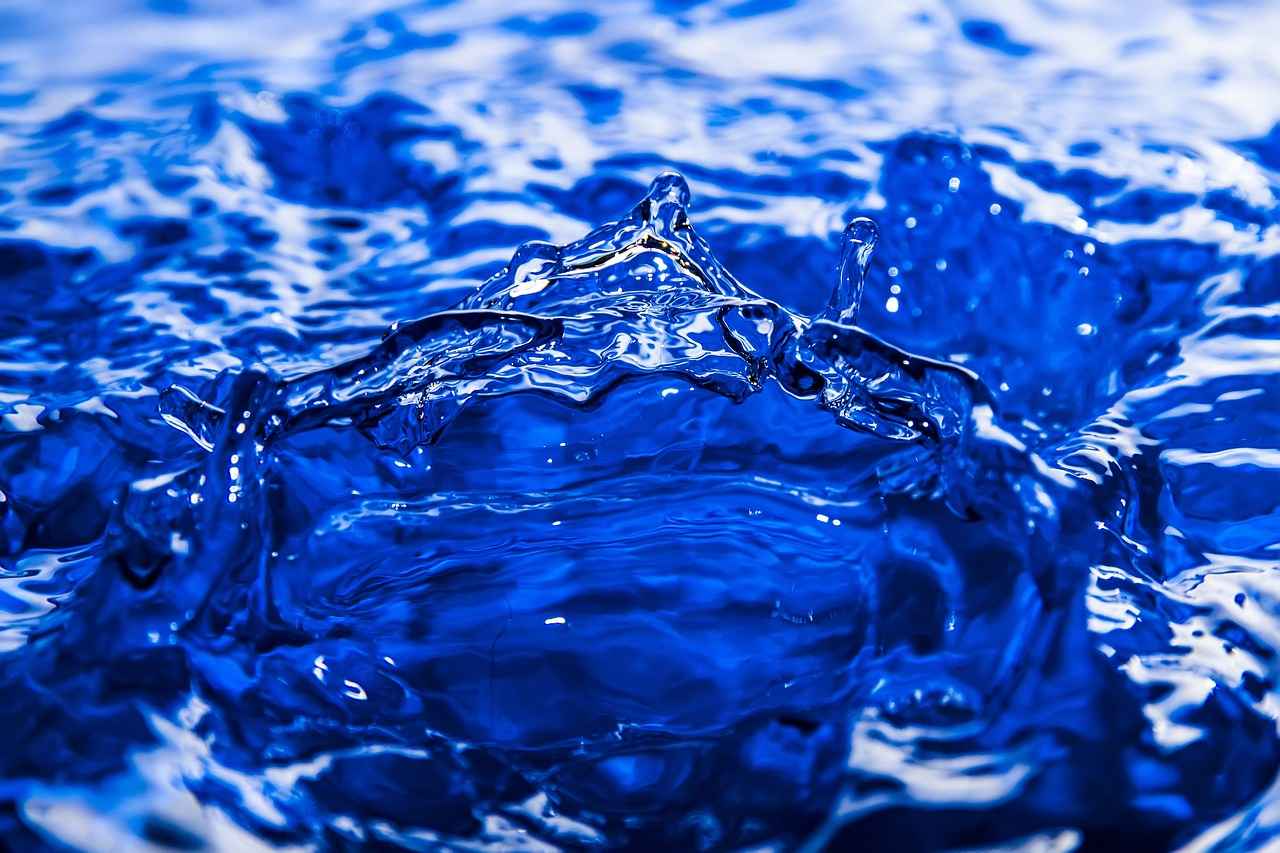
Common Causes of Water Retention
Water retention, often referred to as edema, is a condition where excess fluid builds up in the body’s tissues. Understanding the can be pivotal in managing and mitigating its effects. This section delves into various factors that contribute to this condition, providing insights that can help individuals make informed decisions.
Several factors contribute to water retention, including dietary choices, hormonal fluctuations, and underlying medical conditions. Identifying these can aid in effective management and prevention strategies.
- Dietary Influences: The foods we consume play a significant role in fluid retention. High sodium intake is one of the primary culprits. Foods such as processed meats, canned soups, and salty snacks can cause the body to hold onto excess water. Additionally, a lack of potassium-rich foods can exacerbate this issue, as potassium helps balance sodium levels in the body.
- Hormonal Changes: Hormonal fluctuations, particularly in women, can lead to increased water retention. Conditions such as premenstrual syndrome (PMS) can cause significant changes in fluid balance due to hormonal shifts. This is often temporary but can be uncomfortable and lead to bloating.
- Medical Conditions: Certain health issues can result in chronic water retention. Conditions such as heart failure, kidney disease, and liver disorders can disrupt the body’s ability to regulate fluid balance effectively. If water retention persists, it is crucial to seek medical advice to identify any underlying health concerns.
- Medications: Some medications, particularly those used for high blood pressure, can cause water retention as a side effect. Nonsteroidal anti-inflammatory drugs (NSAIDs) and certain antidepressants are also known to contribute to this condition.
- Physical Inactivity: Prolonged periods of inactivity can lead to fluid accumulation in the lower extremities. When blood circulation is poor, it can result in swelling, particularly in the legs and ankles.
Recognizing these factors is essential for individuals looking to manage their water retention effectively. By making conscious dietary choices, understanding hormonal impacts, and addressing any underlying health issues, individuals can take proactive steps towards reducing water weight and improving their overall well-being.
In conclusion, understanding the common causes of water retention is the first step toward effective management. By identifying and addressing these factors, individuals can take control of their health and reduce the discomfort associated with this condition.
Dietary Influences on Water Retention
Water retention, a common issue faced by many, can be significantly influenced by our dietary choices. Understanding how certain foods affect fluid balance in the body is essential for anyone looking to reduce excess water weight effectively. In this section, we will delve deeper into the dietary influences on water retention and provide practical advice on how to mitigate these effects.
High Sodium Foods: The Culprits
One of the primary dietary factors that contribute to water retention is a high intake of sodium. Sodium is a mineral that plays a critical role in maintaining fluid balance in the body. However, excessive consumption can lead to increased water retention. Foods that are often high in sodium include:
- Processed meats (e.g., bacon, ham)
- Canned soups and vegetables
- Salty snacks (e.g., chips, pretzels)
- Fast food items
- Condiments (e.g., soy sauce, ketchup)
Reducing sodium intake can lead to a noticeable decrease in water retention. It’s recommended to aim for a daily sodium intake of less than 2,300 mg, or ideally 1,500 mg for those looking to manage their water weight.
The Role of Potassium
On the flip side, incorporating foods rich in potassium can help counteract the effects of sodium. Potassium helps to balance sodium levels and encourages the body to excrete excess fluids. Foods high in potassium include:
- Bananas
- Avocados
- Sweet potatoes
- Spinach
- Oranges
Including these potassium-rich foods in your diet can promote a healthier fluid balance and may assist in reducing water weight.
Natural Diuretics to Consider
In addition to managing sodium and potassium levels, certain foods possess natural diuretic properties that can help flush excess water from the body. Some of these include:
- Cucumbers
- Watermelon
- Asparagus
- Celery
- Ginger
Incorporating these foods into your meals can provide a gentle and natural way to reduce water retention.
Hydration’s Paradox
It may seem counterintuitive, but drinking enough water is crucial for reducing water retention. When the body is dehydrated, it tends to hold onto fluids as a survival mechanism. By staying adequately hydrated, you can support kidney function and help your body flush out excess sodium. Aim for at least 8-10 cups of water daily, adjusting based on your activity level and climate.
Hormonal Influences
It’s also important to recognize that dietary influences on water retention can be exacerbated by hormonal changes, especially in women during their menstrual cycle. These fluctuations can cause the body to retain more water, making it essential to monitor both diet and hydration during these times.
In summary, understanding the dietary influences on water retention is key to managing this common issue. By reducing sodium intake, increasing potassium-rich foods, incorporating natural diuretics, and ensuring proper hydration, you can effectively reduce water weight and promote overall health.
High Sodium Foods to Avoid
When it comes to managing water retention, one of the most significant contributors is sodium intake. Processed foods, canned soups, and salty snacks are notorious for their high sodium content, which can lead to the body retaining excess water. Understanding the impact of sodium on your body is essential for anyone looking to reduce water weight quickly.
Sodium plays a crucial role in regulating fluid balance in the body. When consumed in excess, it can cause the body to hold onto more water than necessary, leading to bloating and discomfort. Here are some common high sodium foods to avoid:
- Processed Meats: Items like bacon, deli meats, and sausages are often loaded with sodium as preservatives.
- Canned Vegetables: Many canned vegetables contain added salt for flavor and preservation.
- Frozen Meals: Convenience meals can be a quick option, but they frequently have high sodium levels.
- Snack Foods: Chips, pretzels, and popcorn can be deceptively high in sodium.
- Condiments: Soy sauce, ketchup, and salad dressings often contain significant amounts of sodium.
By reducing your intake of these high sodium foods, you can help your body release stored water. This not only alleviates bloating but also contributes to a healthier overall diet. Switching to fresh, whole foods can be an effective strategy. Fresh fruits and vegetables naturally contain less sodium and are packed with nutrients that promote overall health.
In addition to dietary changes, it’s crucial to stay hydrated. Drinking plenty of water can actually help to flush out excess sodium from your system. This might sound counterintuitive, but adequate hydration encourages your kidneys to function optimally, which helps to regulate fluid balance.
Moreover, when you reduce sodium intake, you might also notice improvements in other areas of health. Lowering sodium can lead to better blood pressure control and reduced risk of heart disease. This is particularly important for individuals with existing health conditions or those at risk.
In conclusion, avoiding high sodium foods is a critical step in managing water retention effectively. By being mindful of your dietary choices and opting for low-sodium alternatives, you can achieve better fluid balance and enhance your overall well-being.
Benefits of Reducing Sodium Intake
Reducing sodium intake is a crucial step towards achieving better health and managing water retention. Sodium, a mineral essential for various bodily functions, can lead to excessive fluid retention when consumed in high amounts. This article delves into the numerous benefits of lowering sodium intake, emphasizing its role in promoting a balanced fluid level and enhancing overall well-being.
One of the primary advantages of reducing sodium is its impact on water retention. When sodium levels are elevated, the body tends to hold onto more water to maintain a proper balance of electrolytes. By cutting back on sodium-rich foods, individuals can experience a noticeable decrease in bloating and swelling, leading to a more comfortable and lighter feeling.
Moreover, lowering sodium intake can significantly benefit those with hypertension or high blood pressure. Excess sodium can constrict blood vessels, leading to increased blood pressure levels. By adopting a lower sodium diet, individuals may not only reduce water retention but also promote healthier blood pressure levels, thereby decreasing the risk of heart disease and stroke.
- Improved Kidney Function: The kidneys play a vital role in filtering excess sodium and fluids from the body. A lower sodium intake can enhance kidney function, allowing for more efficient removal of waste products and excess water.
- Enhanced Weight Management: Reducing sodium can aid in weight loss efforts. By minimizing water retention, individuals may see a decrease in scale weight, which can boost motivation and adherence to a healthy lifestyle.
- Better Nutritional Choices: Lowering sodium often encourages individuals to opt for whole, unprocessed foods like fruits, vegetables, and lean proteins. These foods are not only lower in sodium but also packed with essential nutrients that support overall health.
In addition to these benefits, reducing sodium intake can also lead to improved digestion. High sodium diets can lead to dehydration, which may cause digestive issues. By consuming less sodium, individuals are more likely to stay hydrated, promoting healthy digestion and regular bowel movements.
Lastly, a lower sodium diet can enhance athletic performance. Athletes who consume excessive sodium may experience increased water retention, leading to discomfort and decreased performance. By moderating sodium intake, athletes can maintain optimal fluid balance, ensuring better endurance and recovery during and after workouts.
In summary, the benefits of reducing sodium intake extend far beyond merely decreasing water retention. From improved cardiovascular health to enhanced kidney function and better digestion, lowering sodium can lead to a more balanced and healthier lifestyle. By making conscious dietary choices and being aware of sodium levels in food, individuals can take significant steps toward achieving their health goals.
Hormonal Changes and Their Impact
Hormonal fluctuations play a crucial role in various bodily functions, and one of the most significant impacts is seen during the menstrual cycle. Many individuals experience noticeable changes in their bodies, particularly in terms of water retention. This phenomenon can lead to discomfort, bloating, and even weight fluctuations, making it essential to understand the underlying mechanisms.
During the menstrual cycle, levels of hormones such as estrogen and progesterone fluctuate significantly. These hormones influence the body’s ability to retain water. For instance, elevated levels of estrogen can lead to increased water retention, as it encourages the body to hold onto fluids. This is particularly noticeable in the days leading up to menstruation, commonly referred to as the premenstrual phase.
Progesterone, on the other hand, has a diuretic effect, which can help reduce water retention. However, as estrogen levels rise, the balance shifts, and many individuals find themselves feeling bloated and heavier. This is a natural response, but understanding it can empower individuals to manage their symptoms more effectively.
To alleviate the discomfort associated with water retention during hormonal changes, consider the following strategies:
- Stay Hydrated: Ironically, drinking more water can help flush out excess sodium and reduce water retention. Aim for at least 8-10 glasses of water daily.
- Monitor Sodium Intake: Reducing sodium consumption can limit the amount of water the body retains. Focus on whole foods and avoid processed items.
- Incorporate Diuretic Foods: Foods such as cucumbers, asparagus, and watermelon can naturally promote urine production, helping to alleviate bloating.
- Regular Exercise: Physical activity can enhance circulation and promote sweating, which helps to expel excess water from the body.
- Manage Stress: High stress levels can exacerbate hormonal imbalances. Techniques such as yoga, meditation, and deep breathing can help regulate hormones.
Additionally, it’s important to note that while these strategies can help manage water retention, they may not work for everyone. Every individual’s body responds differently to hormonal changes, and some may require more tailored approaches. Keeping a symptom diary can be beneficial to track fluctuations and identify effective strategies.
For those experiencing severe or persistent symptoms of water retention, it may be wise to consult a healthcare professional. They can provide insights into potential underlying issues and recommend appropriate treatments or lifestyle changes.
In summary, understanding the impact of hormonal changes on water retention is vital for effective management. By implementing practical strategies and remaining mindful of dietary and lifestyle choices, individuals can navigate this natural process with greater ease and comfort.
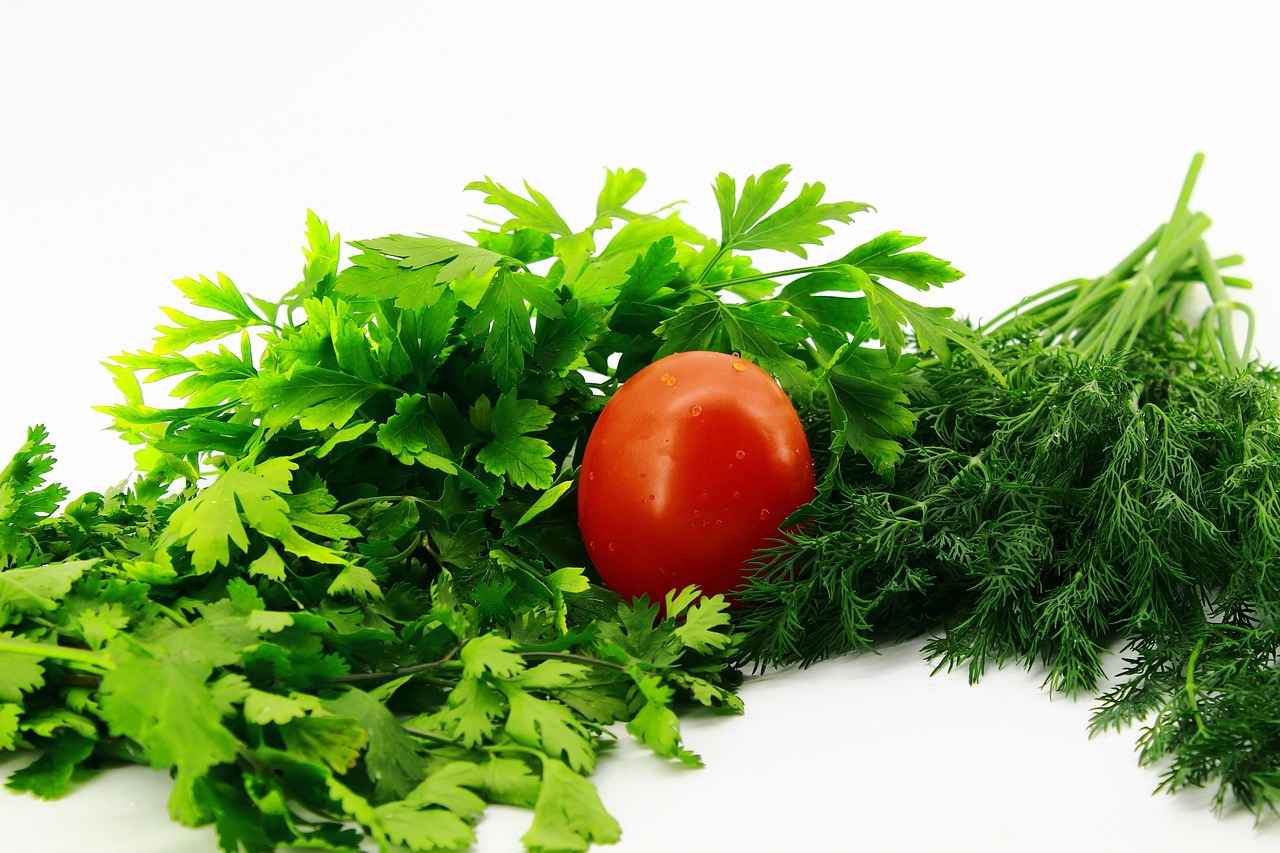
Effective Dietary Changes to Reduce Water Weight
Implementing specific dietary changes can facilitate faster water weight loss. By making thoughtful adjustments to your diet, you can effectively manage water retention and promote a healthier body. Here are some practical adjustments to consider:
- Reduce Sodium Intake: A high sodium diet is notorious for causing the body to retain water. By cutting back on processed foods, canned soups, and salty snacks, you can significantly decrease your sodium levels. Aim for a daily sodium intake of less than 2,300 mg to help your body release excess water.
- Increase Potassium-Rich Foods: Potassium helps balance sodium levels in the body. Incorporate foods such as bananas, spinach, and sweet potatoes into your diet. These foods not only help reduce water retention but also support overall health.
- Incorporate Natural Diuretics: Certain foods have natural diuretic properties that can aid in flushing out excess fluids. Consider adding cucumbers, watermelon, and asparagus to your meals. These foods not only hydrate but also promote urine production, assisting in the reduction of water weight.
- Stay Hydrated: It may seem counterintuitive, but drinking plenty of water can actually help reduce water retention. When the body is well-hydrated, it is less likely to hold onto excess fluids. Aim for at least 8 glasses of water a day to support kidney function and flush out sodium.
- Limit Carbohydrate Intake: Reducing your intake of carbohydrates can lead to a quicker loss of water weight. When you consume fewer carbs, your body uses stored glycogen for energy, which is bound to water. This process can help you shed excess water weight rapidly.
- Opt for Herbal Teas: Certain herbal teas like dandelion tea and green tea can promote diuresis, helping you eliminate excess water. These teas are also rich in antioxidants, providing additional health benefits.
In addition to these dietary changes, consider the timing of your meals. Eating smaller, more frequent meals can help regulate your metabolism and reduce bloating. Furthermore, be mindful of your alcohol intake, as it can lead to dehydration followed by water retention.
Implementing these dietary changes can significantly impact your water weight. By focusing on a balanced diet rich in natural diuretics and low in sodium, you can achieve your weight loss goals effectively and safely. Remember, consistency is key, and making these adjustments part of your lifestyle will yield the best results.
Incorporating Foods with Natural Diuretic Properties
When it comes to managing water weight, dietary choices play a crucial role. One effective strategy is to incorporate foods with natural diuretic properties into your meals. These foods can promote the elimination of excess fluids from the body, helping you feel lighter and more comfortable.
Natural diuretics are substances that encourage the kidneys to expel more sodium and water, which can help reduce bloating and water retention. Many fruits and vegetables are excellent choices due to their high water content and essential nutrients. Here are some of the most effective options:
- Cucumbers: Known for their high water content, cucumbers are refreshing and hydrating. They contain silica, a compound that helps flush out toxins and supports kidney function.
- Watermelon: This juicy fruit is not only delicious but also acts as a natural diuretic. Watermelon is rich in potassium, which helps balance sodium levels in the body and promotes urine production.
- Celery: Celery is another hydrating food that can help reduce water retention. It contains phthalides, which may help relax the tissues of the artery walls and improve blood flow.
- Asparagus: This vegetable is known for its diuretic properties, largely due to the amino acid asparagine, which helps flush out excess fluids and alleviate bloating.
- Beets: Beets are not only nutritious but also help in detoxifying the liver and promoting the elimination of waste through urine.
- Ginger: Often used as a spice, ginger can help stimulate digestion and has mild diuretic effects, which can aid in reducing water retention.
Incorporating these foods into your diet can be simple and enjoyable. For example, you can create a refreshing salad with cucumbers and beets, or enjoy a smoothie with watermelon and ginger. Additionally, consider adding these ingredients to soups and stews for added flavor and health benefits.
Furthermore, it is essential to maintain a balanced diet while focusing on these natural diuretics. Pairing them with adequate hydration, such as drinking plenty of water, can enhance their effectiveness. Surprisingly, staying hydrated can actually help reduce water retention, as it encourages the kidneys to function optimally and flush out excess sodium.
Incorporating foods with natural diuretic properties is a practical approach to managing water weight. By making these dietary adjustments, you can promote a healthier fluid balance in your body, leading to a more comfortable and lighter feeling. Remember to consult with a healthcare professional or a registered dietitian before making significant changes to your diet, especially if you have underlying health conditions.
Hydration and Its Role in Water Weight
When it comes to managing water weight, hydration plays a surprisingly vital role. Many people assume that drinking less water will help them shed excess fluid, but this is a common misconception. In reality, staying adequately hydrated can actually assist in reducing water retention. This article delves into the mechanisms behind this phenomenon and provides practical tips for maintaining optimal hydration.
Water retention, or edema, occurs when the body holds onto excess fluids. This can be caused by various factors, including high sodium intake, hormonal changes, and even certain medical conditions. However, one of the most effective strategies to combat water retention is to ensure that you are drinking enough water. When the body is well-hydrated, it functions more efficiently, particularly the kidneys, which play a crucial role in filtering excess sodium and waste from the bloodstream.
The kidneys are responsible for regulating fluid balance in the body. When you drink sufficient water, these organs can effectively eliminate excess sodium, which is a major contributor to water retention. Inadequate hydration can lead to a state where the body perceives a shortage of water, prompting it to hold onto any available fluid. This is a natural survival mechanism, but it can lead to unwanted bloating and puffiness.
One of the key benefits of staying hydrated is that it helps to flush out excess sodium through urine. Sodium is an essential mineral, but too much of it can cause the body to retain water. By drinking more water, you encourage your body to excrete sodium, thus reducing the likelihood of water retention. This process not only helps in managing weight but also supports overall health by maintaining electrolyte balance.
- Drink Water Regularly: Aim to consume at least 8-10 glasses of water a day. Carry a water bottle to help you keep track of your intake.
- Incorporate Hydrating Foods: Foods like cucumbers, watermelon, and oranges have high water content and can contribute to your overall hydration.
- Avoid Sugary and Caffeinated Drinks: These can lead to dehydration and may contribute to water retention.
- Monitor Your Sodium Intake: Reducing sodium in your diet can enhance the effects of hydration in managing water weight.
It’s important to be aware of the signs of dehydration, which can include dry mouth, fatigue, dizziness, and decreased urine output. If you experience any of these symptoms, it may be a signal that you need to increase your water intake.
In summary, adequate hydration is essential for effectively managing water weight. By promoting kidney function and aiding in the excretion of excess sodium, drinking enough water can paradoxically help reduce water retention. Incorporating hydration-focused habits into your daily routine can lead to noticeable improvements in how your body manages fluid balance, ultimately contributing to better overall health.

Exercise as a Method to Reduce Water Weight
Engaging in regular physical activity is a highly effective strategy for reducing water weight. This section delves into how exercise can facilitate this process through various mechanisms, including sweat production and improved circulation.
When you engage in physical activity, your body temperature rises, leading to increased sweat production. Sweating is the body’s natural way of regulating temperature, but it also serves as a mechanism for flushing out excess fluids. As you sweat, you lose not only water but also electrolytes, which can help balance fluid levels in the body.
Regular exercise enhances blood circulation, which plays a crucial role in maintaining fluid balance. Improved circulation helps transport nutrients and oxygen to cells while also facilitating the removal of waste products and excess fluids. This process can significantly reduce the feeling of bloating and water retention.
- Cardiovascular Exercises: Activities such as running, cycling, and swimming are excellent for promoting sweat production. These exercises elevate your heart rate and increase body temperature, leading to more significant fluid loss.
- Strength Training: While primarily aimed at building muscle, strength training can also promote metabolic processes that help in fluid regulation. Increased muscle mass can enhance your body’s ability to manage water levels effectively.
- High-Intensity Interval Training (HIIT): This type of training combines short bursts of intense activity with rest or low-intensity periods. HIIT can lead to substantial sweating and is effective for quick water weight loss.
To reap the benefits of exercise for reducing water weight, consistency is key. Establishing a regular workout routine not only aids in immediate fluid loss but also contributes to long-term health benefits. Aim for at least 150 minutes of moderate aerobic activity or 75 minutes of vigorous activity each week, combined with strength training at least twice a week.
Interestingly, drinking water before, during, and after exercise is vital. Staying hydrated helps your body function optimally and can paradoxically aid in reducing water retention. When your body is well-hydrated, it is less likely to hold onto excess water, as it senses that it has adequate fluid levels.
While exercise is beneficial, it’s essential to listen to your body. Overexertion can lead to dehydration and other health issues. Pay attention to signs of fatigue and ensure you are replenishing lost fluids appropriately.
For the best results in reducing water weight, combine regular exercise with dietary changes. Reducing sodium intake, consuming diuretic foods, and maintaining a balanced diet can enhance the effectiveness of your exercise routine.
In summary, incorporating regular physical activity into your lifestyle is a powerful method for reducing water weight. Through sweat production and improved circulation, exercise not only aids in immediate fluid loss but also promotes long-term health and well-being.
Types of Exercises to Consider
When it comes to reducing water weight, incorporating the right types of exercises can significantly enhance your results. Engaging in regular physical activity not only helps in shedding excess water but also contributes to overall health and well-being. Below, we delve into the two primary categories of exercise: cardiovascular and strength training, highlighting their unique benefits and how they can work together to achieve your weight loss goals.
Cardio exercises are primarily aimed at increasing your heart rate and promoting sweating, which is crucial for expelling excess water from your body. These exercises can include:
- Running or Jogging: A highly effective way to increase heart rate and burn calories.
- Cycling: Whether on a stationary bike or outdoors, cycling is great for cardiovascular health.
- Swimming: This full-body workout not only helps in burning calories but also reduces the impact on your joints.
- High-Intensity Interval Training (HIIT): Short bursts of intense exercise followed by rest can maximize sweat production.
Incorporating 30 minutes of cardio at least 3-5 times a week can significantly aid in reducing water retention.
While cardio focuses on burning calories and sweating, strength training is essential for building muscle mass. Increased muscle mass can enhance your metabolism, leading to more effective fat burning and water weight reduction. Key strength training exercises include:
- Weight Lifting: Using free weights or machines to target major muscle groups.
- Bodyweight Exercises: Movements like push-ups, squats, and lunges can be done anywhere and are highly effective.
- Resistance Bands: These are excellent for adding resistance to your workouts without heavy weights.
- Core Strengthening: Exercises such as planks and sit-ups can improve overall stability and strength.
Engaging in strength training at least 2-3 times a week can help build muscle and improve your overall body composition.
The most effective approach to reducing water weight is to combine both cardio and strength training exercises. This combination ensures that you are not only sweating out excess water but also building muscle, which can enhance your metabolic rate. A well-rounded routine might look like this:
Monday: 30 minutes of cardio + 30 minutes of strength trainingWednesday: 30 minutes of HIITFriday: 30 minutes of cycling + 30 minutes of strength training
By alternating between these types of exercises, you can keep your workouts engaging while maximizing the benefits of each.
To effectively reduce water weight, it is crucial to maintain a consistent exercise routine. Regular physical activity not only helps in achieving immediate results but also contributes to long-term health benefits. Aim to establish a routine that you can stick to, incorporating various exercises to prevent boredom and promote adherence.
In summary, both cardio and strength training play vital roles in reducing water weight. By understanding their unique benefits and incorporating them into your fitness routine, you can achieve your weight loss goals more effectively.
Importance of Consistency in Exercise
When it comes to achieving your health and fitness goals, consistency in exercise plays a pivotal role. Many individuals embark on fitness journeys with enthusiasm, only to find their motivation waning over time. However, establishing a regular exercise routine is crucial not just for immediate results but also for long-term health benefits.
Engaging in physical activity consistently helps to create a sustainable lifestyle. It is essential to understand that reducing water weight and improving overall health requires more than just sporadic workouts. Regular exercise promotes better circulation, enhances metabolism, and encourages the body to shed excess fluid.
Incorporating a variety of exercises into your routine can also prevent boredom and keep you motivated. Consider the following types of exercises:
- Cardiovascular Exercises: Activities such as running, cycling, and swimming increase heart rate and promote sweating, which can help eliminate excess water weight.
- Strength Training: Lifting weights not only builds muscle but also boosts metabolism, allowing your body to burn more calories at rest.
- Flexibility and Balance Exercises: Yoga and Pilates improve flexibility and balance, contributing to overall fitness and well-being.
To achieve optimal results, it is advisable to aim for at least 150 minutes of moderate aerobic activity each week, combined with strength training on two or more days. This balanced approach not only aids in weight management but also enhances muscle tone and strength.
Moreover, consistency in exercise can help regulate hormonal fluctuations that contribute to water retention. For instance, women may experience increased water weight during their menstrual cycle. Regular physical activity can mitigate these effects, providing relief and promoting a sense of well-being.
It’s also worth noting that maintaining a routine does not mean you have to engage in high-intensity workouts every day. Finding a balance that works for you, whether it’s brisk walking, dancing, or playing a sport, can make it easier to stick with your exercise plan over time. The key is to make physical activity a regular part of your lifestyle.
In addition to physical benefits, exercising consistently can improve your mental health. Regular workouts release endorphins, which are known as feel-good hormones. This boost in mood can enhance motivation and make it easier to maintain your routine.
Lastly, tracking your progress can be a powerful motivator. Consider using fitness apps or journals to document your workouts, monitor changes in your body, and celebrate milestones. Seeing your progress visually can reinforce your commitment to your exercise routine.
In summary, the importance of consistency in exercise cannot be overstated. By committing to a regular workout schedule, you can effectively reduce water weight and improve your overall health. Remember, the journey to fitness is a marathon, not a sprint. Embrace the process, stay consistent, and enjoy the numerous benefits that come with a healthy lifestyle.

When to Seek Medical Advice
Understanding when to seek medical advice regarding water retention is crucial for maintaining overall health. While water retention is often a benign condition, there are instances when it may signal more serious underlying health issues. Recognizing these signs can help you take timely action and prevent potential complications.
What is Water Retention?
Water retention, or edema, refers to the accumulation of excess fluids in the body’s tissues. This condition can manifest in various ways, such as swelling in the legs, ankles, or abdomen. It can be caused by numerous factors, including dietary choices, hormonal fluctuations, and certain medical conditions.
When is Water Retention a Concern?
- Persistent Symptoms: If you experience water retention that lasts more than a few days or keeps recurring, it is essential to consult a healthcare professional. Persistent swelling could indicate an underlying issue that needs to be addressed.
- Severe Swelling: Sudden and severe swelling, especially in the face, hands, or feet, should not be ignored. This could be a sign of a serious condition, such as heart failure or kidney disease.
- Accompanied Symptoms: If water retention is accompanied by other symptoms such as shortness of breath, chest pain, or severe headaches, seek medical attention immediately. These could be signs of more serious health issues.
- Changes in Urination: A noticeable change in urination patterns, such as decreased output or dark urine, could indicate kidney problems and should prompt a visit to a healthcare provider.
Common Underlying Conditions Linked to Water Retention
Several medical conditions can contribute to water retention, and understanding these can aid in recognizing when to seek help:
- Heart Failure: The heart’s inability to pump effectively can lead to fluid buildup.
- Kidney Disease: Impaired kidney function can disrupt the body’s fluid balance.
- Liver Disease: Conditions affecting the liver can lead to fluid accumulation in the abdomen.
- Hormonal Imbalances: Conditions like polycystic ovary syndrome (PCOS) can cause hormonal fluctuations that lead to water retention.
Consulting a Healthcare Professional
If you are unsure about the cause of your water retention, it is always better to err on the side of caution. A healthcare professional can perform necessary tests, such as blood tests or imaging studies, to determine the underlying cause and recommend appropriate treatments.
Conclusion
In summary, while occasional water retention is usually harmless, it is essential to be vigilant about persistent or severe cases. By understanding the signs and symptoms that warrant medical attention, you can ensure that any underlying health issues are addressed promptly. If in doubt, do not hesitate to seek professional advice to safeguard your health.
Frequently Asked Questions
- What is water weight?
Water weight refers to the temporary retention of fluids in your body. It’s like carrying around a backpack filled with water; it can feel heavy, but it’s not permanent!
- What causes water retention?
Water retention can be caused by a variety of factors including high sodium intake, hormonal fluctuations, and even certain medical conditions. Think of it as your body holding onto extra water like a sponge!
- How can I reduce water weight quickly?
You can reduce water weight quickly by making dietary changes, staying hydrated, and incorporating regular exercise. It’s like cleaning out a cluttered closet; once you start removing the excess, you’ll feel lighter!
- Are there specific foods that help reduce water retention?
Yes! Foods like cucumbers, watermelon, and those rich in potassium can act as natural diuretics, helping your body flush out excess water. It’s like sending in a little cleaning crew!
- When should I seek medical advice for water retention?
If you experience persistent or severe water retention, it’s important to consult a healthcare professional. Sometimes, it can signal underlying health issues that need attention.
